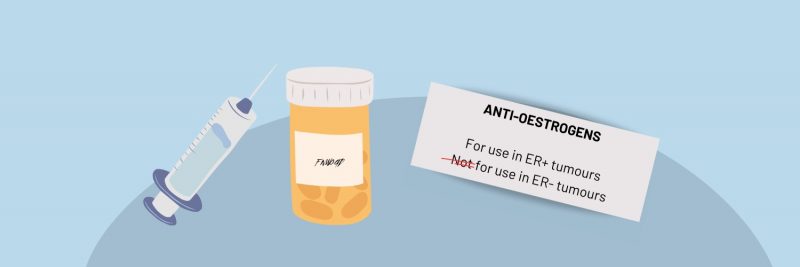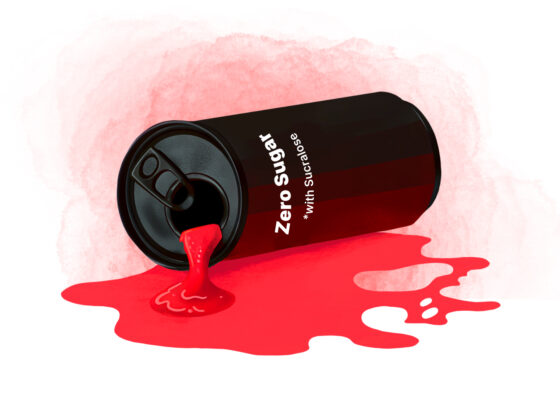Adding anti-oestrogen therapy improves response to combined chemotherapy and immune checkpoint inhibition in tumours that do not express oestrogen receptors. The Japanese study, published in British Journal of Cancer, provides a new rationale for introducing therapies blocking oestrogen signalling to boost the anti-tumour effects of immune therapy.
“We have demonstrated that anti-oestrogenic therapies can potentially maximise the therapeutic efficacy of cancer immunotherapy regardless of tumour cells’ ERα [oestrogen receptor α] expression,” says Ken-ichiro Seino, the senior author from Hokkaido University, Sapporo, Japan.
Around three quarters of breast cancer cases are oestrogen receptor positive, making them responsive to anti-oestrogenic therapies. However, little is known about the potential role of oestrogen suppression in patients with tumours that are not oestrogen sensitive, such as triple negative breast tumours. Additionally, while checkpoint inhibitors have brought about a paradigm shift in systemic cancer therapy from conventional cytotoxic therapies, only some cancer patients respond markedly, and most tumours will acquire therapeutic resistance after the initial response.
Previous studies have reported that oestrogen accelerates tumour progression by driving the mobilisation and immunosuppressive activity of myeloid-derived suppressor cells or macrophages. Men, it has been noted, are more responsive to immune checkpoint inhibitors than women. “Based on these backgrounds, it is evident that the oestrogen-ER axis participates in orchestrating TME [tumour microenvironment], wherein immune cells are considered the potential target in oestrogen-induced immune suppression,” write the authors.
For the study, using datasets obtained from triple negative breast cancer patients in The Cancer Genome Atlas (TCGA), the team investigated the relationship between oestrogen and different immune cells. Oestrogen, they found, suppresses cytotoxic T lymphocytes, resulting in a poor prognosis even in ERα-negative cancers. From this finding, Seino and colleagues hypothesised that oestrogen influences the prognosis of ER-negative cancers by modulating the tumour microenvironment, in particular cytotoxic T lymphocytes.
To determine whether oestrogen affects tumour progression in ERα-negative cancers, they generated oestrogen depleted mouse models (by ovariectomy). When they transplanted triple negative breast cancer 4T1 and mouse colon cancer CT26 cell lines into both ovariectomised and sham operated mice, both models showed that ovariectomised mice achieved greater reduction in tumour progression. Daily administration of oestrogen to ovariectomised mice reversed the advantage in tumour reduction.
The observation that tumour regression efficacy achieved through ovariectomy disappeared in nude mice (with inhibited immune systems), indicated that T cell immunity was required for tumour progression to be reduced by oestrogen depletion. “These data collectively demonstrated that oestrogen induces tumour progression and poor outcomes by mediating the immune system in ERα-negative cancers,” write the authors.
To further support the view that oestrogen promotes tumour growth independently of ERα expression, the team showed anti-oestrogenic therapies (fulvestrant, tamoxifen and anastrozole) suppressed triple negative breast cancer tumour growth. Then, mimicking the clinical setting in a mouse model of triple negative breast cancer, the team evaluated the therapeutic effects of adding fulvestrant to the combination of chemotherapy and two kinds of immune checkpoint inhibitors. Results showed an additional 70% increase in tumour regression for the fulvestrant combination in comparison to chemotherapy and immune checkpoint inhibitors alone.
Analysis with flow cytometry showed that fulvestrant induced higher gene expression of granzyme-b, perforin-1, and interferon-γ within tumours, suggesting that it induces and activates effector cytotoxic T lymphocytes.
“These results represent the notion that oestrogen creates an immunosuppressive TME, and its inhibitors can break the suppression, resulting in tumours acquiring sensitivity to ICIs [immune checkpoint inhibitors] by activating the T cells within ERα-negative tumours,” write the authors. “Our discovery can be a novel strategy to overcome therapeutic resistance by augmenting T cell immunity to eliminate cancer cells.”
The findings could have widespread implications. “Besides hormone-positive breast, ovarian and endometrial cancers, most other cancers lack or low-express oestrogen receptors. All cancers with immune cell infiltration can theoretically be treated with anti-oestrogen drugs,” Nabeel Kajihara, the first author, told Cancerworld. “As women have been less able to benefit from immune checkpoint inhibitors than men, adding anti-oestrogenic drugs could eliminate this disadvantage for women.” The next step, he adds, will be to verify the findings in a clinical study.












